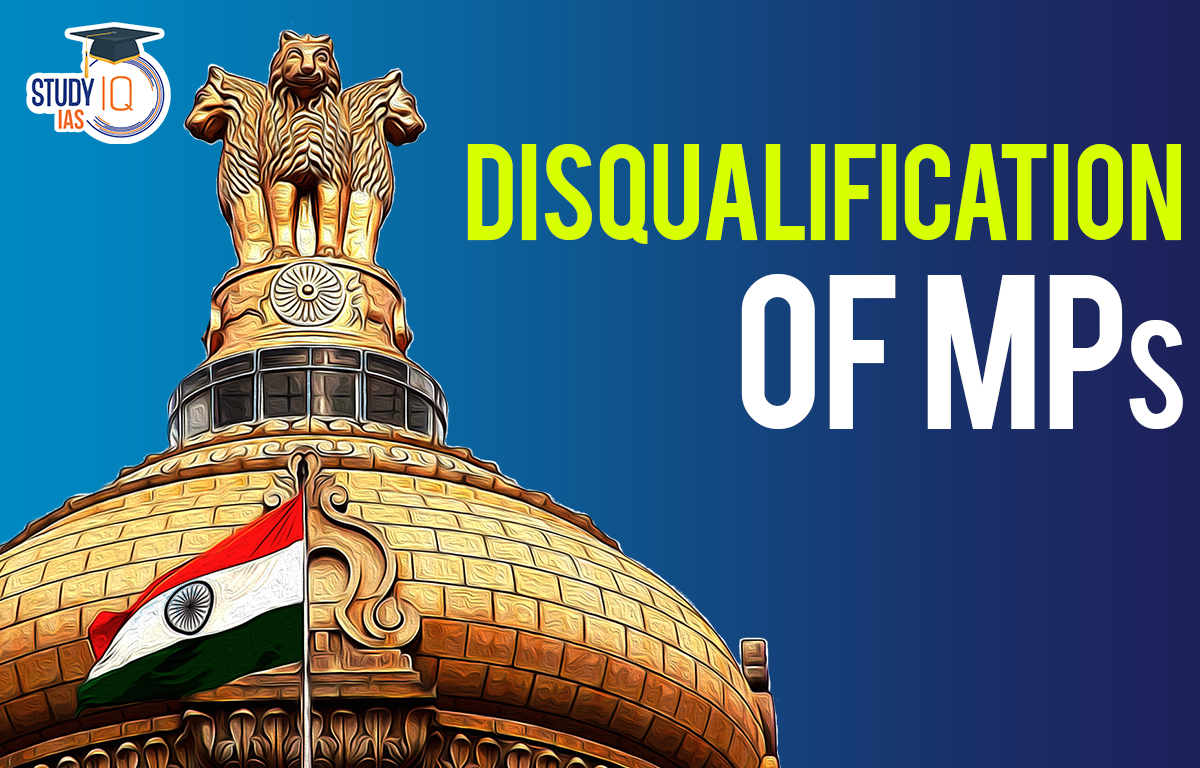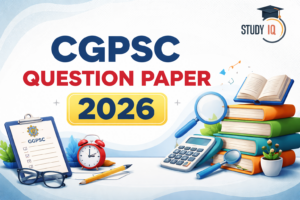Table of Contents
Context: Recently, an eminent politician has been sentenced to two years jail which shall lead to his disqualification as a Member of Parliament (MP).
Constitutional Provisions for Disqualification
- Articles 102 & 191: Basic disqualification criteria for an MP are laid down in Article 102 of the Constitution and for an MLA in Article 191.
- Article 102 authorizes Parliament to make law determining conditions of disqualifications.
- Grounds for disqualification under Constitution:
- Holding an office of profit under the Government of India or State Government
- Being of unsound mind
- Being an undischarged insolvent
- Not being an Indian citizen or for acquiring citizenship of another country.
- Tenth Schedule: Commonly known as the ‘anti-defection law’, it was meant to arrest the practice of legislators from changing political affiliations during their term in office.
- A member incurs disqualification under the defection law:
- If he voluntarily gives up the membership of the political party on whose ticket he is elected to the House;
- If he votes or abstains from voting in the House contrary to any direction given by his political party;
- If any independently elected member joins any political party; and
- If any nominated member joins any political party after the expiry of six months.
- Authority: The question of disqualification under the Tenth Schedule is decided by the Chairman in the case of Rajya Sabha and Speaker in the case of Lok Sabha.
- The present law does not specify a time-period for the Presiding Officer to decide on a disqualification plea. The decision of the Chairman/Speaker in this regard is subject to judicial review.
- Exceptions in Anti-Defection Law: The law enables a party to merge with another party if at least two-thirds of the legislators of the party are in favour of such a merger.
- A member incurs disqualification under the defection law:
The Representation of the People Act (RPA), 1951
- Section 8(1): This includes specific offences such as promoting enmity between two groups, bribery, and undue influence or personation at an election.
- A person will be disqualified if convicted and sentenced to imprisonment for not less than two years.
- The person is disqualified for the period of imprisonment and a further six years.
- Section 9: It deals with disqualification for dismissal for corruption or disloyalty, and for entering into government contracts while being a lawmaker.
- Section 10: It deals with disqualification for failure to lodge an account of election expenses.
- Section 11: It deals with disqualification for corrupt practices.
Legal Protection for Legislators against Disqualification
- Under Section 8(4) of the RPA, legislators could avoid immediate disqualification until 2013.
- The provision said that with respect to a Member of Parliament or a State legislator the disqualification will not take effect for three months.
- If within that period, the convicted legislator files an appeal or revision application, it will not take effect until the disposal of the appeal or application.
- In Lily Thomas vs. Union of India, the Supreme Court struck down clause (4) as unconstitutional, thus removing the protection enjoyed by lawmakers.
Can the Disqualification be Removed?
- Supreme Court: The Supreme Court has the power to stay not only the sentence, but also the conviction of a person.
- In some rare cases, conviction has been stayed to enable the appellant to contest an election.
- However, the SC has made it clear that such a stay should be very rare and for special reasons.
- Section 11 of RPA: Under Section 11 of the Act, the Election Commission may record reasons and either remove, or reduce the period of a person’s disqualification.
- The EC exercised this power for Sikkim Chief Minister P.S. Tamang, who served a one-year sentence for corruption, and reduced his disqualification so as to contest a by-election and remain in office.


 CGPSC Prelims Answer Key 2026: Download ...
CGPSC Prelims Answer Key 2026: Download ...
 CGPSC Question Paper 2026 – Download C...
CGPSC Question Paper 2026 – Download C...
 Graphic Processing Units (GPUs) – Work...
Graphic Processing Units (GPUs) – Work...




















